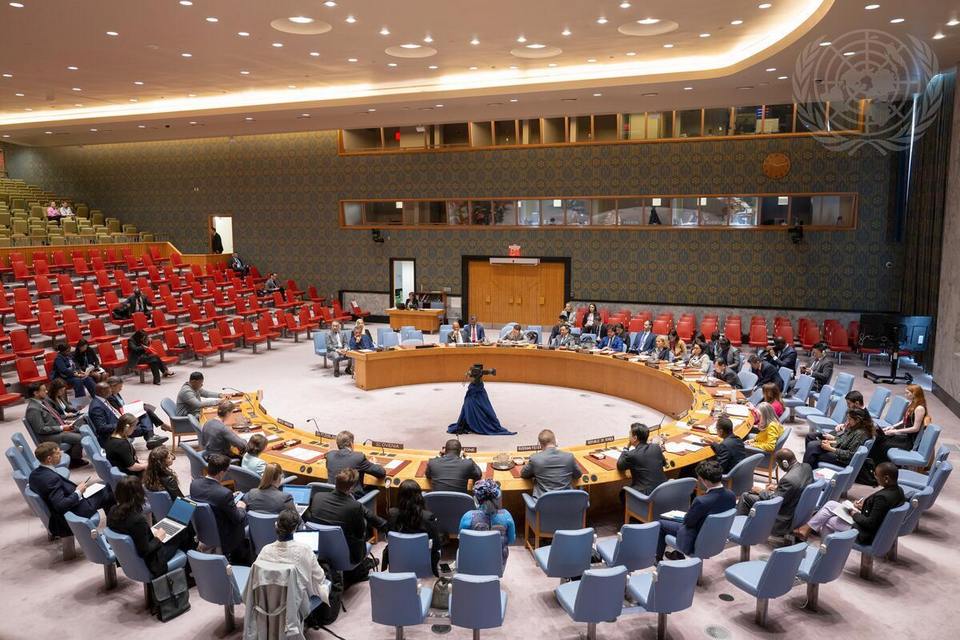United Nations comes out neutral on Thai-Cambodian conflicts
The UN Security Council debates the ThaI-Cambodian border violence. (UN file photo)
The United Nations Security Council (UNSC) has drawn a non-partisan conclusion about the ongoing Thai-Cambodian border rows. Thai foreign affairs minister Maris Sangiampongsa, returning from New York, said the 15 UNSC members had advocated neighborly dialogue and peace, but had not issued a formal declaration nor taken sides. They had expressed support for Asean’s role in enabling dialogue under the charter of the 10 grouped states in southeast Asia. But Asean is customarily very reluctant to become involved in the detail of territorial disagreements between members, many of which hark back to rulings by colonial powers 100 years or more ago.
The decision has been received with relief in Bangkok. Cambodia initiated the UNSC meeting held in New York on July 26 and several of the current members (5 permanent and 10 temporary) were thought to have closer ties with Cambodia than Thailand has. UNSC has the power actually to order a fact-finding mission, or to deploy its military forces to troubled areas or to fast-track the dispute to the International Court of Justice (ICJ) at The Hague, but has evidently not taken any such course. The ICJ in 1962 and in 2013 previously voted to endorse Cambodia’s position on some border issues, especially the Preah Vihear temple, but left ambiguous ownership of surrounding land. However, Thailand had declined to accept ICJ rulings as early as 1960.
In fact, many countries have opted out of ICJ verdicts. Israel and China have both refused verdicts against their national interests, whilst the US has done so on multiple occasions. Only last week the US State Department said that an ICJ ruling that all states were obliged under international law to tackle climate change was no more than advisory. Donald Trump’s administration has embraced a fossil-fuel agenda under the slogan Drill Baby Drill. The British government has also indicated it will study the international decision before deciding whether or not to accept it.
Associate professor Panitan Wattanayagorn, a security expert, said the UNSC outcome was promising for Thailand but was only the beginning of a long diplomatic struggle. Cambodia has already appealed independently to the ICJ, although the matter could take years without UN backing. The ICJ is already deluged with depressing cases including Haiti, the Congo, Syria and the Red Sea. Dr Panitan advised proactive engagements with third party countries and providing comprehensive information on Cambodia’s alleged violations of Thai sovereignty. These include landmine placements, artillery shelling of hospitals, schools and civilian targets. These actions could even be classified as crimes against humanity.
Meanwhile, Thai activists at the border regions told reporters that it was obvious Cambodia had started the violence last week. Their evidence was that, whilst Thai children were at their desks when the trouble began, Cambodian youngsters had already been sent home in order to avoid any gunfire retaliation. It has also been suggested that satellite data imaging also shows that Cambodian forces attacked first, although this information was not presented to the UNSC.



